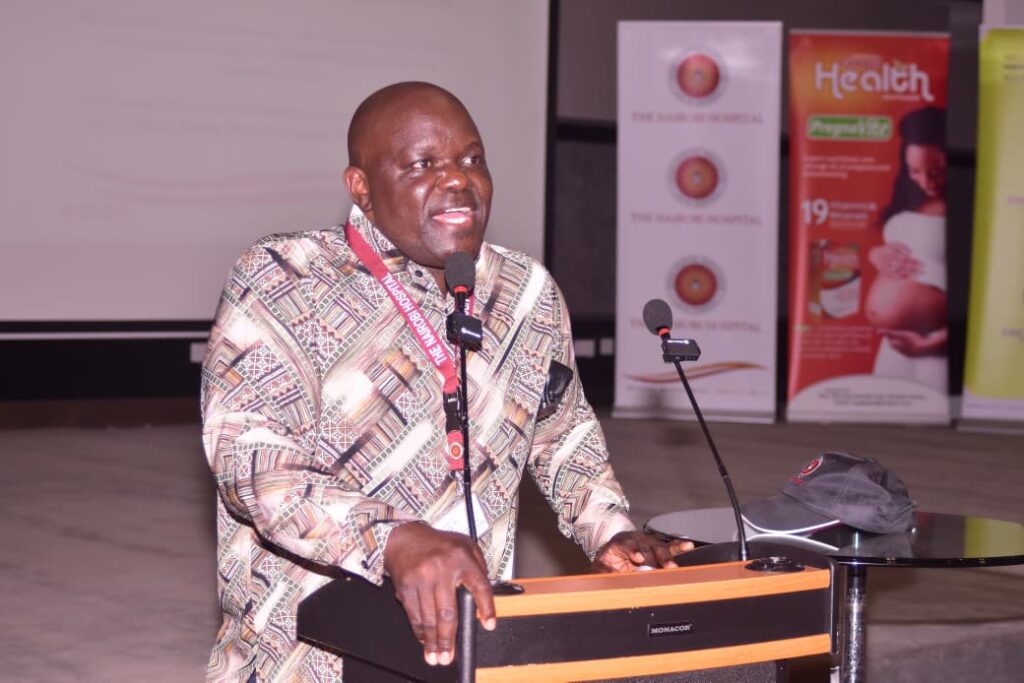
By Steve El Sabai
The Nairobi Hospital has reaffirmed its leadership in advancing maternal and child health by hosting a free training that reached more than 300 mothers, expectant mothers, fathers, and nannies.
The event, dubbed the “Daddy, Mommy and Baby Fair,” was designed to provide families with practical knowledge on pregnancy, labour, childbirth, lactation, breastfeeding, immunization, nutrition, and general childcare. The interactive format created a safe and inclusive space for participants to engage directly with healthcare professionals, ask questions, and learn how to dispel myths that often put mothers and babies at risk.
The sessions covered a wide range of topics, including pregnancy journeys and birth options, labour and delivery myths versus facts, nutrition for mothers, immunization essentials, and nanny training. The holistic approach ensured that both parents and caregivers were better equipped to protect maternal and child health.
Mr. Nicodemus Odongo, Director of Strategy and Innovation at The Nairobi Hospital, emphasized that maternal health goes beyond the medical sphere and is a societal priority.
“We cannot reduce maternal mortality without confronting the myths, fears, and inequalities that surround childbirth. Events like this show what’s possible when hospitals, communities, and partners come together. Every conversation we spark, every myth we dispel, brings us closer to a future where no woman dies giving life,” he said.
The training comes at a critical time for Kenya, which continues to grapple with one of the highest maternal mortality rates in Sub-Saharan Africa. According to UNICEF, the country recorded 530 deaths per 100,000 live births in 2023. This represented an 11 percent improvement compared to the previous year but remains far from the Sustainable Development Goal target of fewer than 70 maternal deaths per 100,000 live births by 2030.
Dr. Sylvia Mruttu, an Obstetrician and Gynecologist at The Nairobi Hospital, underscored the importance of antenatal and preconception care.
“Pregnant women should have at least four antenatal visits during their pregnancy. These visits help diagnose conditions early, assess potential risks, and implement preventive measures in good time,” she noted.
Although Kenya has made significant progress in maternal healthcare through partnerships with NGOs, faith-based groups, and private sector players, deep-rooted cultural beliefs, stigma around caesarean sections, and reliance on traditional birth attendants continue to pose challenges.
By hosting this initiative, The Nairobi Hospital not only provided vital knowledge but also demonstrated its commitment to safeguarding mothers and children while working towards a healthier future for all families.

More Stories
Kitengela’s 4X Population Growth and Rapid Urbanization Draw In LG/Opalnet’s 6th Store
Eldohub Champions AI in Education Through Trainer Empowerment
Dr Paul Wanjohi Highlights Challenges of Running Two Curriculums in One School